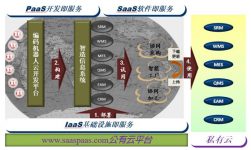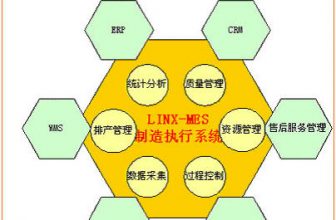
Intelligent manufacturing factory solution-MES manufacturing enterprise production process execution system
[ad_1]
1. What is MES
The MES system is the production process execution system of the manufacturing enterprise, and it is a set of production information management system for the execution layer of the manufacturing enterprise workshop. MES can provide companies with manufacturing data management, planning and scheduling management, production scheduling management, inventory management, quality management, human resources management, work center/equipment management, tooling management, procurement management, cost management, project kanban management, production Management modules such as process control, bottom-level data integration and analysis, and upper-level data integration and decomposition will create a solid, reliable, comprehensive, and feasible manufacturing collaborative management platform for the enterprise.
2. Why use MES
? On-site management fineness: change from day to minute/second
?On-site data collection: from manual input to scanning, fast and accurate collection
?Electronic Kanban management: from manual statistical release to automatic collection and automatic release
? Warehouse material storage: fuzzy and stray become transparent and regular
?Production task allocation: manual to automatic allocation, capacity balance
? Warehouse management: labor and data lag become systematic guidance, timely and accurate
?Responsibility traceability: difficult and vague become clear and correct
?Performance statistical evaluation: relying on incomplete data estimation becomes relying on accurate data analysis
?Statistical analysis: multi-angle analysis and comparison according to different times/models/production lines.
3. How MES helps customers win value
lower the cost
-Reduce raw materials, work in progress, semi-finished products and finished products inventory
-Improve equipment utilization and reduce equipment downtime
-Reduce the waste of personnel costs caused by manual statistics and offline communication
-Reduce production costs and risk costs caused by defective products
Increase efficiency
-Discover and eliminate production bottlenecks to improve production efficiency
-Improve logistics efficiency by reducing inventory and increasing material matching rate
-Track equipment operating status and usage status, count equipment production capacity, and reasonably arrange equipment plans to improve equipment utilization efficiency
quality improvement
-Full traceability to achieve rapid recall
-Error-proofing mechanism to avoid the production of wrong products
-Perfect early warning mechanism to avoid the occurrence of quality problems
-Predefine the upper and lower limits of quality to strictly control the process specifications
-Automatically obtain production parameters from the equipment to avoid manual input leading to data errors
Boost
-Improve the speed and accuracy of communication through information exchange through a unified, full-process information platform
-Timely diagnose the variability of manufacturing links and track the progress of resolution, speed up problem exposure and resolution, and reduce the scope of impact
-Provide timely and accurate first-hand information on site to management personnel to improve the speed and accuracy of decision-making

Four, our customers
Provide long-term services for leading companies in many industries at home and abroad
Every year, more than 200 billion RMB products are using the intelligent manufacturing system we have implemented

our client
[ad_2]




